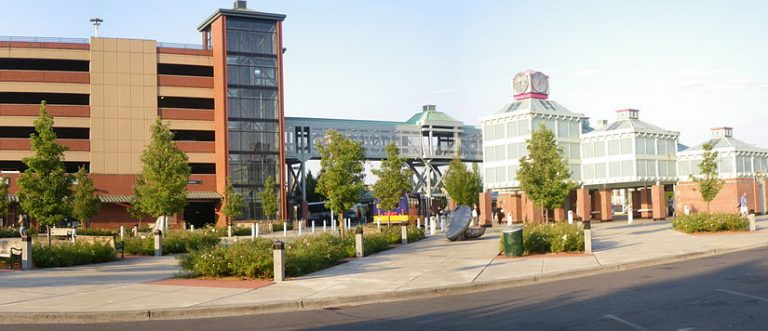Published on August 30, 2016

The University of Washington has begun a yearlong partnership with the City of Auburn, under the new Livable City Year program. UW students and professors will work with the City of Auburn to advance the city’s goals for livability and sustainability throughout the upcoming academic year.
In this inaugural year, UW faculty will lead classes to work on 15 to 20 projects identified by the City of Auburn. Students will provide tens of thousands of hours of study and production toward specific projects identified by Auburn, while benefiting from the opportunity to apply classroom lessons to real-world problems.
“This partnership represents the very best kind of UW student experience by creating opportunities for community engagement, practical problem-solving and interdisciplinary study,” said University of Washington President Ana Mari Cauce. “The UW could not be prouder to partner with the City of Auburn through the Livable City Year program to combine education with making positive change in a Washington community.”
The Auburn City Council voted unanimously Aug. 29 to enter into an agreement with the UW for the program.
The UW’s Livable City Year program is a cross-university collaboration led by faculty directors Branden Born, an associate professor in the College of Built Environments, and Jennifer Otten, an assistant professor in the School of Public Health, in collaboration with UW Sustainability and with foundational support from Urban@UW, the College of Built Environments and Undergraduate Academic Affairs. The program connects local governments with UW classes to address community-identified areas of need. The coordinated, cross-discipline approach provides the local partners with a new option to enhance sustainability and livability elements within existing and future projects and programs.
“I think the most powerful thing about Livable City Year is that it allows UW to connect with communities throughout the state using this field-tested and mutually beneficial model,” said program manager Jennifer Davison, who also manages Urban@UW. “This partnership with Auburn will be fully supported every step of the way by the program, from project identification and connection with faculty and courses, to student experience and final delivery of meaningful work to the city. It’s really exciting to see it coming together.”
Auburn’s government and administration were early champions of the program, and the city’s willingness and preparedness to take on this opportunity helped move the program forward from an idea to a reality.
“We are incredibly honored and excited to be partnering with the University of Washington on these projects and to be part of this ground breaking year for the program,” Auburn Mayor Nancy Backus said.
“This program is an incredible example of what higher education can do for our community,” said Auburn Deputy Mayor Largo Wales. “Not only does this give students a unique hands-on learning opportunity, it provides the city with the opportunity to complete valuable projects that we would not have been able to otherwise.”
Livable City Year is based on the University of Oregon’s Sustainable City Year Program and is a member of the Educational Partners for Innovation in Communities Network.
“By connecting many courses over one academic year to projects that address the partner city’s specific goals, Livable City Year can have broad impacts that are difficult for faculty to achieve on their own,” Born said. “Livable City Year gives faculty across many disciplines a chance to work together in a fully collaborative UW effort.”
As part of the Livable City Year process, Auburn directors and staff identified almost 50 different possible projects for consideration. UW faculty will select 15 to 20 of these projects as subjects for classes in a variety of disciplines. Students will work on the projects in conjunction with Auburn staff for a meaningful end result. Projects were identified over a wide range of topics, such as public works, innovation and technology, urban planning and more.
“This program provides students with an opportunity to tackle meaningful and challenging real-world problems,” Otten said. “Projects addressed in these UW class and city collaborations directly affect the health and well-being of the city’s population. Students will gain an introduction to the civic process and get an opportunity to become better engaged with local communities.”
###
For more information, contact Born at bborn@uw.edu or 206-543-4975; Davison at jnfrdvsn@uw.edu or 206-240-6903; and Jenna Leonard, Auburn’s climate and sustainability practice leader, at jleonard@auburnwa.gov or 253-804-5092.
Marc Schlossberg, co-director of the University of Oregon’s Sustainable Cities Initiative, is available to talk about this similar program: schlossb@uoregon.edu or 541-346-2046.
The Livable City Year program will hold a kickoff event highlighting the projects UW students will be working on during the fall quarter on Oct. 6 at 10 a.m. in the wǝɫǝbʔaltxʷ – Intellectual House at the University of Washington.
(Originally published by UW News and Daimon Eklund)